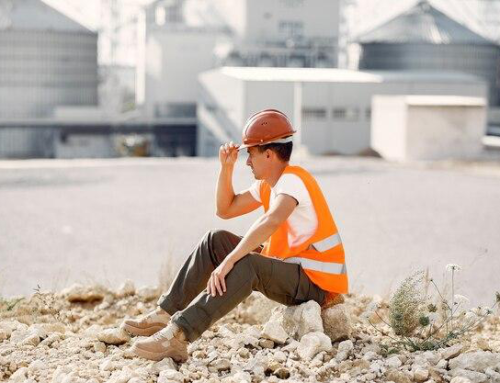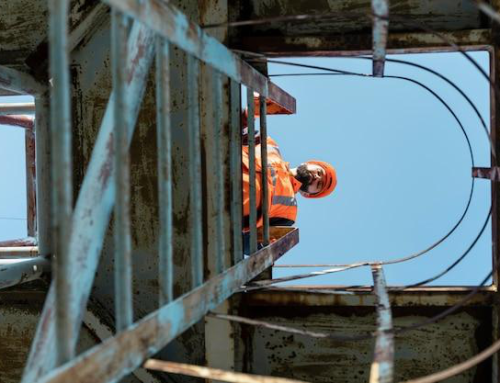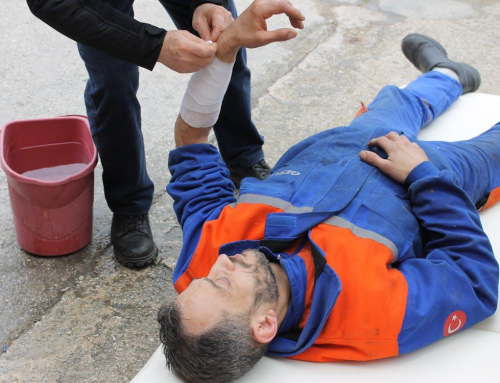In the bustling landscape of industrial workplaces, the question of who needs fall protection training is critical. Falls are a leading cause of workplace injuries and fatalities, making fall protection training an essential component of ensuring the safety of workers operating at heights.
In this comprehensive exploration, we will delve into the intricacies of fall protection training, shedding light on who should undergo this training, its significance, and how Metro Safety Training in Vancouver, Canada, plays a pivotal role in delivering top-tier education in this domain.
Understanding the Need for Fall Protection Training
The Basics of Fall Protection
Before we embark on the discussion of who requires fall protection training, let’s establish a fundamental understanding of fall protection. Fall protection involves a set of measures designed to prevent or mitigate falls from elevated work surfaces. This can include the use of guardrails, safety nets, personal fall arrest systems, and more.
Statistics Highlighting the Risk
Worksite inspections often reveal the gravity of the situation. According to recent statistics, falls consistently rank among the top causes of workplace injuries and fatalities. For worksites in Surrey and beyond, fall protection training is not just a regulatory requirement but a crucial investment in the workforce’s well-being.
In recent worksite inspections in Surrey, it was evident that falls constitute a significant risk. Statistical analyses have consistently showcased that falls are a predominant cause of workplace injuries and fatalities. It is imperative to address this concern through comprehensive fall protection training, emphasizing the need for effective safety measures.
Who Needs Fall Protection Training?
Construction Workers
Construction sites inherently pose fall hazards due to elevated work, making fall protection training crucial for safety. Scaffold workers, roofers, and those involved in structural work face specific challenges. Scaffold workers, for instance, require training not only in fall prevention but also in proper scaffold assembly and use. Roofers need expertise in roof safety systems, including anchor points and personal fall arrest systems.
Metro Safety Training tailors courses to address these unique challenges, emphasizing practical knowledge on equipment usage and hazard identification, ensuring construction workers are well-prepared for the complexities of their work environment.
Maintenance and Repair Personnel
Fall protection is indispensable for maintenance and repair personnel working on rooftops, ladders, or elevated platforms. Specific areas of focus include proper ladder usage, fall arrest systems, and hazard assessment. For those servicing machinery or conducting repairs on infrastructure, understanding anchor points for equipment tie-off and implementing effective work positioning techniques are vital.
Metro Safety Training’s courses provide hands-on training, ensuring maintenance and repair personnel can apply theoretical knowledge to real-world scenarios, enhancing their ability to work safely at heights.
Window Cleaners
Window cleaning for high-rise buildings exposes professionals to significant fall risks. Beyond traditional fall protection measures, window cleaners require specialized training in the use of bosun chairs, suspended scaffolds, or descent devices. Understanding load capacities, anchor point selection, and emergency descent procedures are critical components of this training. Metro Safety Training’s tailored courses for window cleaners delve into these specifics, ensuring professionals are well-versed in the equipment and techniques necessary for safe and effective window cleaning at elevated heights.
Electrical Workers
Electrical workers often work at heights while installing or maintaining electrical systems, facing not only fall risks but also unique challenges related to their field. Integration of Occupational First Aid (OFA) training with fall protection ensures a comprehensive skill set. Specific training includes assessing the risk of electrical shock while using fall protection equipment, implementing lockout/tagout procedures, and understanding the limitations of fall arrest systems near energized equipment.
Metro Safety Training’s courses for electrical workers prioritize the integration of first aid protocols with fall protection measures, addressing the intricacies of working safely at heights in the electrical field.
Emergency Responders
First responders and emergency personnel, including firefighters and rescue teams, may need fall protection training, especially when rescues involve elevated locations. Beyond conventional fall protection, they require training in high-angle rescue techniques, understanding load dynamics during rescue operations, and efficient use of specialized equipment like rope systems. Metro Safety Training’s courses for emergency responders encompass these advanced skills, ensuring they can navigate challenging rescue scenarios safely and effectively.
Professionals in Confined Spaces
Fall protection in confined spaces requires a nuanced approach. Limited entry and exit points, atmospheric hazards, and potential falls necessitate tailored training. Understanding the interaction between fall protection and confined space regulations is crucial. Specific topics include the use of tripods, hoists, and self-retracting lifelines in confined spaces.
Metro Safety Training’s confined spaces safety courses address these intricacies, providing professionals with the knowledge and skills needed to safely work in confined environments.
The Significance of Fall Protection Training
1. Injury Prevention
Investing in fall protection training is an investment in injury prevention. The knowledge gained in these courses empowers workers to identify potential fall hazards, use protective equipment effectively, and take preventive measures.
2. Regulatory Compliance
In Canada, workplace safety is regulated by various authorities. Fall protection training is often a regulatory requirement, and adherence to these standards is crucial for legal compliance. Workplace safety training in Surrey, including fall protection courses offered by Metro Safety Training, ensures alignment with local regulations.
Ensuring regulatory compliance is not just about avoiding legal ramifications; it’s about creating a secure work environment. Workplace safety training in Surrey is designed to address regional regulations, instilling a culture of compliance that goes beyond avoiding penalties to prioritizing the safety and well-being of every worker.
3. Creating a Safety Culture
Metro Safety Training emphasizes the importance of creating a safety culture within organizations. Fall protection training fosters an environment where safety is a shared value, and workers are actively engaged in their well-being.
4. Reduced Workers’ Compensation Costs
Workplace injuries resulting from falls can lead to substantial workers’ compensation costs for employers. By investing in fall protection training, employers can mitigate the risk of such incidents, ultimately reducing the financial burdens associated with compensation claims.
Reducing workers’ compensation costs is not just about financial savings; it’s about investing in the overall well-being of the workforce. Fall protection training becomes a strategic initiative that not only safeguards workers but also contributes to the financial health of the organization.
Metro Safety Training: Elevating Fall Protection Education
In the realm of fall protection education, Metro Safety Training stands as a beacon of excellence, committed to providing customized training solutions and ensuring that participants receive the highest level of expertise from qualified instructors.
Customized Training Solutions
Recognizing that different industries encounter unique fall hazards, Metro Safety Training takes a proactive approach by offering tailored training programs. This customization is not a one-size-fits-all solution but a strategic effort to address the specific needs of diverse professions. For construction workers navigating scaffolding, roofers facing challenges at elevation, or maintenance personnel servicing machinery, the training programs are meticulously designed to align with the intricacies of each profession.
In the construction sector, emphasis is placed on scaffolding safety, teaching workers not only how to prevent falls but also the proper assembly and usage of scaffolding structures. Roofers, exposed to heightened risks, benefit from specialized courses focusing on roof safety systems, including anchor points and personal fall arrest systems. Maintenance personnel, working on rooftops, ladders, or elevated platforms, receive training that encompasses proper ladder usage, fall arrest systems, and hazard assessment.
The effectiveness of Metro Safety Training’s customized approach lies in its ability to bridge theory with practical application. Participants gain not only theoretical knowledge but also hands-on experience relevant to their specific work environments. This ensures that when they return to their professions, they are well-prepared to implement what they’ve learned, contributing to safer workplaces across diverse industries.
Qualified Instructors
At the core of effective fall protection training is the quality of instruction. Metro Safety Training takes pride in its team of instructors – a group of seasoned professionals with both experience and certification. These instructors bring real-world expertise into the classroom, enriching the learning experience for participants.
Certified in their respective domains, Metro Safety Training’s instructors adhere to industry standards and best practices. Their certifications validate their competence and ensure that participants receive instruction from individuals who not only understand the theoretical framework of fall protection but have also navigated the challenges of real-world work environments.
Learning Experience
The learning experience at Metro Safety Training is not merely about absorbing information; it’s about gaining a comprehensive understanding of fall protection through the eyes of professionals who have been in the field. This approach not only enhances the credibility of the training but also instills a sense of confidence and trust among participants.
Contact Metro Safety Training today to experience firsthand the impact of personalized fall protection education led by qualified instructors. Your safety is our priority, and we are dedicated to empowering you with the knowledge and skills needed to navigate the complexities of fall hazards in your profession.









